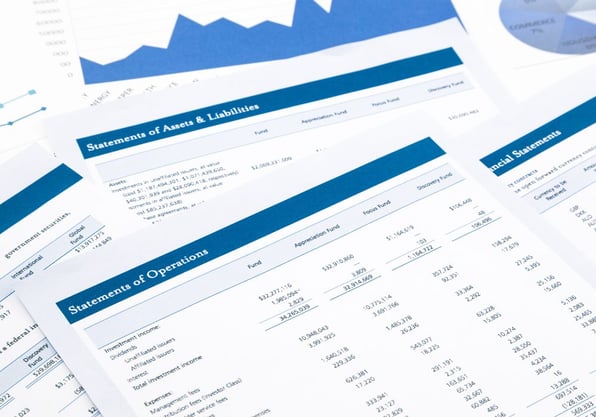At TobinLeff, our mission is to help owners maximize and monetize their life’s work. To that end, over the past 13 years, in addition to helping clients sell to strategic buyers and private equity groups, we have designed and implemented many management buy out plans (MBOs).
Our partner, Mary McKinney, who has a background in law and the governance of closely held businesses, works with clients on MBOs and business transition and succession plans. In the piece, Mary touches on:
- How to assess the viability of an internal transaction
- How to arrive at a fair price
- Financing options
- How to be assured you get your money
- How to prepare the team and company for the transition
And, as always, feel free to reach out to any of our partners anytime to discuss whatever exit or exit planning topics are on your mind.
Click here for your complimentary copy: TL Is Your Best Employee Your Best Buyer White Paper
Selling Your Business – Is Your Best Employee Your Best Buyer?
You have spent years building and growing a successful company. Alongside you have been certain key employees – people you have mentored, who have been there through the business cycles, those you trust to carry out the day-to-day.
Now, you have been thinking about what’s next for you, whether that’s a new venture or a new adventure.
Might these same employees be the best buyers for your company? Perhaps.
In our experience at TobinLeff working with over 155 companies through internal and external sales, we’ve found the steps to any successful sale are to:
- Sell to the right People
- At the right Price
- With the right financing and incentives to ensure you get Paid
- So you can Prepare the participants, the company, and your clients for the transition
In an internal sale to key employees, here’s what that means:
1. Sell to the Right People
Your employees are highly competent and unfailingly committed to your clients, but do they have what it takes to chart the next challenges and seize the next opportunities?
Competence and commitment are essential qualities for a successful CEO. But, as you know from your own experience, they are not sufficient:
- Does your team have the vision and entrepreneurial drive to both see and seize opportunities in new markets and ensure growth in existing ones?
- Are they capable of driving sales, sustaining current client relationships, and generating new business?
- Do they understand the business and financial sides of the business, or do they have someone else who does?
- Do they (as well as their spouses/significant others) have an appropriate tolerance for risk, balanced with an ability to realistically evaluate the environment?
- Are they leaders that others want to follow? Do they project and inspire confidence and trust?
- Can they clearly articulate a vision and strategy…and then execute it?
At TobinLeff, a major emphasis of our work with clients considering internal sales is to educate owners and vet and evaluate potential internal and external purchasers as we guide all parties through the process of determining whether the potential new owners have what it takes. And, if they don’t yet, whether they can get there.
We have learned through experience that personal interviews and ongoing communications with possible internal buyers are essential parts of the process to:
- Educate buyers as to the reality vs. the romance of business ownership
- Provide the degree of separation that allows the prospective buyers to feel comfortable speaking candidly about their feelings, doubts, and concerns
- Reassure the employees that the only wrong decision is the one that doesn’t fit them; whether they feel comfortable moving forward or decide that it’s not for them, either option is perfectly fine
2. At the Right Price
Once you have confidence that your employees have what it takes, then you need to determine the fair price for this sale.
Internal sales often occur at lower purchase prices than those to a strategic buyer or to private equity, either because the cost and revenue synergies that exist for third parties do not exist when selling to an employee or simply because the owner wants to reward their next generation of leadership for the work they’ve already done.
Nonetheless, an internal sale may be the best bet financially for you and for your company, particularly (1) if your key employees are those best positioned to grow the firm and will be most incentivized to do so if they become owners, (2) if you can get more cash upfront from an internal sale than from an external buyer, (3) if you have had a recent downward trend that you and your key employees feel confident will reverse but external buyers might not, or (4) if your firm may be too small to attract the attention of external buyers at a price that will be attractive to you. (For more details on important factors affecting business valuation, see the TobinLeff White Papers, What’s Your Business Really Worth? and Value Drivers to Increase Your Agency's Value and Your Net Worth.)
Working with the experienced team at TobinLeff, you will determine a selling price (or a formula for a future price) that ensures you receive what your business is worth. We also take all participants through an education process that ensures your employees know the value of what they are buying and what owning equity will mean to them.
3. With the Right Financing and Incentives to Ensure You Get Paid
Unlike a well-capitalized external buyer, your key employees likely don’t have independent resources available to bankroll a significant percentage of the purchase price at closing. There are, however, steps you can take to ensure that you get paid what you expect to be paid, when you expect to be paid it.
These steps include:
- Exploring external financing options: Even if the business does not have significant hard assets, the acquiring employees may be able to use accounts receivable or other business assets to secure a substantial portion of the purchase price through external financing. The most viable financing option (up to a maximum of $5 million) for internal sales has historically been through a bank loan backed by the SBA. While rates have increased, the SBA is still actively guaranteeing financing, and TobinLeff maintains relationships with multiple SBA lenders. SBA financing can be an excellent option for selling owners as they can receive the lion’s share of the purchase upfront. There are, however, several limits to SBA loans, including that you must exit the company within 12 months.
- “Skin in the Game”: Your employees will be a lot more motivated to keep going when the going gets tough (or when other opportunities might arise) if they’ve already got several stacks of their own chips on the table. Requiring that your employees have some “skin in the game” before you fully exit – perhaps by giving them the option to buy some equity interest upfront at a discount – can help to ensure that they give it their all.
- Delaying transfer of legal control: If your employees are unable or unwilling to secure a bank loan for the full purchase price, you can consider financing all or part of the transaction yourself. Issuing a Seller’s Note is a risky proposition, though, as you are both deferring significant payments and limiting your recourse if the transition in ownership does not go as planned. In these situations, we have designed plans where the sellers maintain legal control of the company until they are paid in full. If the buyers or company are unable to make the scheduled payments to you for your equity, you will have the ability to make changes, including selling the company to an outside buyer. This helps to both increase your options and better align incentives. If you are interested, the partners at TobinLeff who help clients with Management Buy-Out Plans (MBOs) will be happy to share sample cases and what we believe are best practice design elements.
4. Prepare the Participants, the Company, and the Clients for the Transition
Now that you know who your buyer will be, what price they will pay, and how you will structure the deal, it’s time to begin the process of preparing to hand over the reins so you can sail/hike/motorcycle towards the sunset.
First, you need to prepare yourself and your buyers. You’ll need to get clear with yourself, and then with your employees, about what your own transition is going to look like: how will your role change and over what time? Keep in mind that, as discussed above, if the deal is being financed through an SBA loan, SBA requires that you be completely separated from the company within 12 months from the deal closing.
Your employees, on the other hand, will need to get ready to step into your shoes. This includes beginning to transition key responsibilities and relationships and may even include formal leadership or management training. They’ll need to learn the accounting and HR systems and who is responsible for them. And, you’ll need to transfer relationships with bankers and key vendors, as well as accountants and lawyers.
You’ll also need to get ahead of the rumor mill; it’s better for the rest of your team and for your clients to hear about this transition – and what it means for them – straight from the owner’s mouth. This will mean being transparent about what will change and, even more importantly, what won’t. It may mean some incentives for other key employees who won’t be members of the Successor Ownership Team. It will mean working with clients to build relationships and trust with the successor owners first, well before you make your full exit. And, of course, a big part of this process is being strategic about your successor owners’ role in these communications – this is a great time to begin positioning them as the next generation of leadership.
Your First Steps Towards the Four Steps
If you think selling to your key employees might be right for you, or if you are eager to find out, then an M&A Advisor with significant experience in internal sales, like TobinLeff, can help you evaluate whether you have the right buyers in-house and clarify what it will take to get them ready to lead, all while appropriately valuing your company for the transaction and structuring the sale to ensure you receive a fair price for your equity.
Selling your business, even to your own employees, can be an all-consuming process. Internal deals, in particular, often fizzle, falter, and eventually fail, if an experienced advisor isn’t there to help you navigate underlying tensions that inevitably arise and to reality-test different options to determine which will work best for you. There’s far more to bringing these transactions home than simply drafting legal documents and getting the accounting in place. It’s the business and deal knowledge, combined with the human experience, that converts Management Buy-Out talks from failed exercises to win-wins for all parties.



